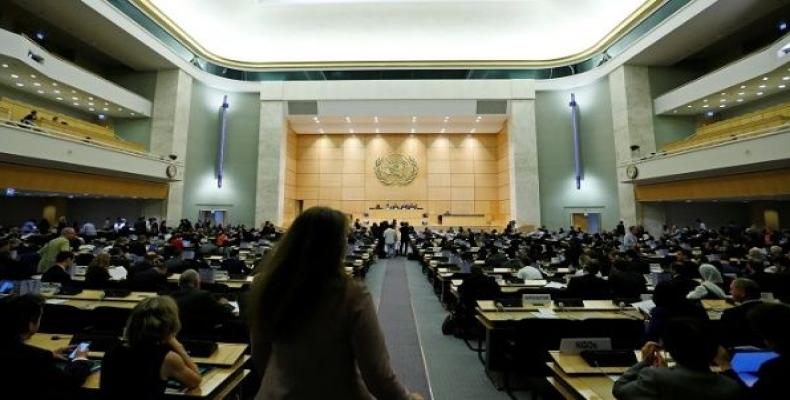United Nations, April 27 (RHC)-- Despite their treaty obligations, observers say that all nuclear-armed NPT members are engaged in modernizing their arsenals and making nuclear weapons a more central part of their defense strategies. A top UN official sounded the alarm over a new, looming arms race and warned that the risk that devastating nuclear weapons could be used was on the rise.
"The threat of the use, intentional or otherwise, of nuclear weapons, is growing," the UN's representative for disarmament affairs, Izumi Nakamitsu, told a preliminary review meeting of the Nuclear Non-Proliferation Treaty (NPT). The NPT, negotiated at the height of the Cold War nearly a half-century ago, seeks to prevent the spread of atomic weapons while putting the onus on nuclear states to reduce their stockpiles.
Speaking at the opening of the Geneva meeting, Nakamitsu warned that "the world today faces similar challenges to the context that gave birth to the NPT." She said: "Rhetoric about the necessity and utility of nuclear weapons is on the rise," stressing that "modernization programmes by nuclear-weapons states are leading to what many see as a new, qualitative arms race."
The NPT treaty, which counts 191 member states, faces a comprehensive review every five years, with preparatory committees each year in between. The next full review of the treaty is scheduled for 2020, 50 years after the NPT first took effect. This year's meeting comes after North Korea, which pulled out of the treaty in 2003, declared a moratorium on nuclear and long-range missile tests and said it would dismantle its nuclear test site.
U.S. President Donald Trump has threatened to tear up the 2015 nuclear deal that lifted sanctions on Iran in exchange for curbs to its atomic programme unless new restrictions are imposed on its missile program and other areas by May 12th.
Meanwhile, a number of speakers voiced their support for the Iran deal. Nakamitsu stressed the UN's backing of the agreement as "the best way to ensure the exclusively peaceful nature of Iran's nuclear programme."
Five of the world's nuclear-armed states — Britain, China, France, Russia, and the United States — are parties to the NPT. But India and Pakistan, as well as Israel, which has never acknowledged it has nuclear weapons, have never signed the treaty. Despite their treaty obligations, observers say that all nuclear-armed NPT members are engaged in modernizing their arsenals and making nuclear weapons a more central part of their defense strategies.
President Donald Trump's administration has for instance recently decided to upgrade the U.S. nuclear weapons arsenal and to complement massive "strategic" bombs with smaller "tactical" weapons, in a move critics say would make them easier to use.
During the meeting, China's representative Fu Cong accused Washington of using "untenable excuses to intensify its nuclear capability and nuclear deterrence policy and lower the threshold for using nuclear weapons."
United Nations warns the threat of nuclear weapons use grows

المنشورات ذات الصلة
التعليق
أترك تعليقا
الجميع مطلوبة
جاري التحميل
La Música en el Cine Latinoamericano
فيما يلي
- Boletín Resumen
- Esperanto
- Escucha Conmigo

